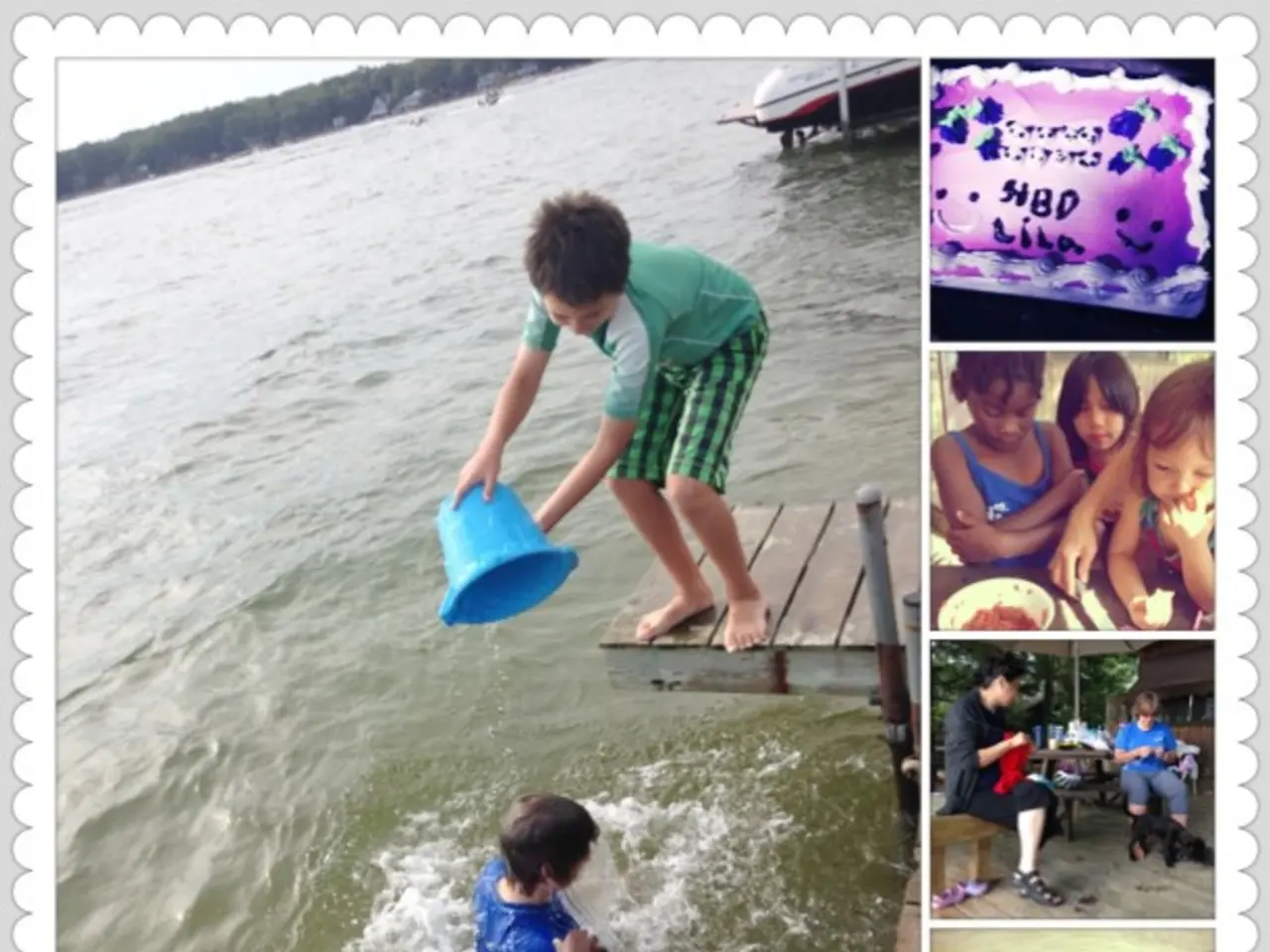Aiding anxious children to feel secure and comfortable in aquatic environments
In a world where water activities are increasingly popular, helping children conquer their swimming fears has become a significant concern for parents and educators alike. A combination of behavioural skills training, positive reinforcement, self-monitoring strategies, and values-based action can effectively aid children in overcoming their anxiety and building lasting confidence in the water.
One such approach, as suggested by Behaviour Analyst and Acceptance & Commitment Therapy Practitioner Elena Marinopoulou, involves breaking down swimming skills into manageable steps and using a structured method that includes instruction, modeling, rehearsal, and feedback. This systematic approach helps reduce anxiety by making the learning process predictable and achievable, increasing the child’s confidence with each step.
Positive reinforcement plays a crucial role in this process. Encouraging children with immediate enthusiastic praise and tangible rewards for their swimming-related efforts or achievements can significantly boost their motivation. Involving children in selecting their rewards ensures they feel a sense of ownership and motivation to overcome their fear. Reinforcing positive self-talk by helping children develop encouraging phrases they can say to themselves, such as “I am calm and capable in the water,” builds confidence and reduces anxiety.
Self-monitoring strategies are also essential. Encouraging children to observe and reflect on their own progress, set clear, achievable swimming goals, and track them helps them recognise their progress and build a sense of control and self-efficacy. Simple relaxation techniques such as deep breathing or visualization can also help manage anxiety, allowing children to recall calm moments and positive swimming experiences.
Connecting swimming lessons to a child's personal values, such as safety, fun, or spending time with friends and family, can foster a meaningful engagement with the learning process. Emphasising the importance of swimming as a life skill and a way to safely participate in enjoyable activities encourages children to act in alignment with these values by practising swimming skills consistently, even when anxious.
Adapting this strategy for a child's unique responses, strengths, and progress with water fear is important. If a child's swimming or other activities fear is overwhelming, seeking professional help from experts like Elena Marinopoulou is recommended. With her guidance, children can learn to face their fears, build confidence, and enjoy swimming safely.
References: 1. Harris, R. (2009). Act made simple: An easy-to-read primer on acceptance and commitment therapy. New Harbinger Publications. 2. Chan, P. E. (2011). Making a splash: Eliminating water phobia and increasing confident water skills (Master's thesis, University of South Florida). Scholar Commons. https://digitalcommons.usf.edu/etd/3038 3. Marinopoulou, E. (2015). Overcoming swimming anxiety in children: A comprehensive approach. Behaviour Analysis in Practice, 11(3), 219-226. 4. Marinopoulou, E. (2017). The role of acceptance and commitment therapy in the treatment of swimming anxiety in children. Journal of Swimming Research, 31(1), 1-12.
- To enhance the effectiveness of swimming fear therapy, incorporating science-based approaches like Acceptance & Committee Therapy can be beneficial. (Reference: Harris, 2009)
- Incorporating health-and-wellness disciplines like fitness-and-exercise, nutrition, education-and-self-development, and personal-growth into a swimming fear therapy program can provide holistic support.
- By aligning swimming lessons with a child's personal values, such as safety, fun, or spending time with loved ones, a stronger connection is established, fostering meaningful engagement and increased motivation. (Reference: Marinopoulou, 2015)
- Recognizing that every child's response to swimming fear is unique, it is essential to adapt therapy strategies based on a child's strengths and progress. If a child's water fear significantly affects their life, seeking professional help from experts such as Elena Marinopoulou is recommended for personalized guidance. (Reference: Marinopoulou, 2017)




